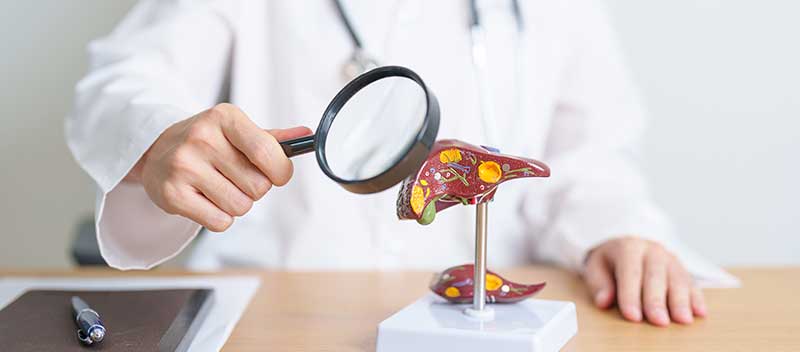The liver, a vital organ in the human body, is crucial for detoxification, metabolism, and digestion. Unfortunately, it is also susceptible to a variety of diseases, liver cancer being one of the most concerning. It is crucial for individuals to be aware of this disease’s causes, symptoms, and risk factors, as it is frequently diagnosed at an advanced stage. In this in-depth blog post, we will delve into the complexities of liver cancer, examining its primary causes, common symptoms, and preventative measures to empower you to take charge of your health.
What Causes Liver Cancer?
Several factors can cause hepatocellular carcinoma (HCC), the medical term for liver cancer. Understanding these causes is the first step in reducing your likelihood of developing this life-threatening disease. The following are some of the most common causes of liver cancer:
- Chronic Hepatitis B and C Infections: Chronic infection with the hepatitis B or C virus is a major liver cancer risk factor. These viruses can cause persistent liver inflammation, which increases the likelihood of malignant growth.
- Cirrhosis is a condition characterized by the fibrosis of liver tissue, which is frequently the result of excessive alcohol consumption or chronic viral hepatitis. Cirrhosis substantially increases the likelihood of developing liver cancer.
- Non-Alcoholic Fatty Liver Disease (NAFLD): NAFLD is a condition in which fat accumulates in the liver. It is linked to obesity, diabetes, and metabolic syndrome. NAFLD can sometimes progress to liver malignancy.
- Heavy Alcohol Consumption: Heavy and prolonged alcohol consumption can damage liver cells and increase the risk of liver cancer over time.
- Aflatoxins are toxic substances produced by specific molds that grow on plants such as peanuts, maize, and other grains. Over time, consuming foods contaminated with aflatoxins may increase the risk of developing liver cancer.
- Some individuals bear genetic mutations that make them susceptible to liver cancer. These mutations can be passed down from progenitors.
Frequent Signs of Liver Cancer
Symptoms of liver cancer typically manifest in the later phases of the disease, when the cancer has advanced. Recognizing these symptoms may be essential for early diagnosis and prompt treatment. Here are some prevalent signs and symptoms of liver cancer:
- Abrupt and unexplained weight loss, frequently accompanied by loss of appetite, can be an early indicator of liver cancer. Consult a healthcare professional immediately if you have been losing weight without making an effort to do so.
- Pain or Discomfort in the Upper Right Abdomen Persistent pain or discomfort in the upper right abdomen may indicate liver cancer. The pain may become more severe as the disease progresses and may be dull or acute.
- Jaundice: Jaundice, characterized by discoloration of the skin and whites of the eyes, can occur when the liver is unable to effectively process bilirubin. It is an outward manifestation of liver dysfunction and may be a symptom of liver malignancy.
- Fatigue and weakening: Persistent fatigue and weakening are often early indicators of liver cancer, caused by the tumor’s effect on liver function.
- A sudden loss of appetite or a feeling of fullness even after consuming a small quantity of food may be a symptom of liver cancer.
- Nausea and Vomiting: Persistent nausea and vomiting, particularly when accompanied by other symptoms, should prompt a visit to a medical professional.
- Ascites or Leg Edema: Due to impaired liver function, liver cancer can cause fluid accumulation in the abdomen (ascites) or legs (edema).
The conclusion
Liver cancer is a complex, potentially fatal disease with a variety of causes and subtle symptoms. Early detection is essential for effective treatment, so if you or someone you know exhibits any of the above symptoms, it is vital to seek medical attention immediately. In addition, you can reduce your risk of developing liver cancer by maintaining a healthy lifestyle, receiving the hepatitis B vaccination, and avoiding excessive alcohol consumption. By prioritizing liver health and remaining informed, you can reduce your susceptibility to this formidable disease and take charge of your health.



